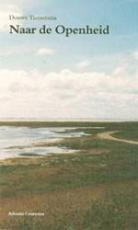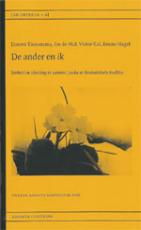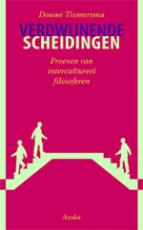Advaita Post #13 - 05 --- Liberation lies in the acceptance...
February 26, 2012
--- Liberation lies in the acceptance of not knowing ---
Image and the imageless - form and emptiness
*****
It is difficult
in lethargy, depression, suffering
to see your own limitations and
let go of them.
It is even more difficult
in creativity, flow, happiness
to see your own limitations and
let go of them.
See
in the open origin:
suffering and happiness are
free from limitation.
*****
Insanity
In the previous Advaita Post there was a section about pain in order to clarify something and to allow it to be recognized. Now a follow up about insanity.
After the major surgery the analgesia did not work so well. Anesthetists tried everything possible to nullify the pain. One of the means was ketamine. This substance is also used as a drug to stop the sensory functions and to separate from the body and world. In my case, these features, especially the visual, went wild. With my eyes open the phenomena in the visual field came to life. The structure of the wall opposite me began to move like the surface of a body of water, faster and faster and with brighter and brighter colors. A fixed point could not be found; there was no foothold. I was sucked in to the whole circus. My body and myself were pulled along. With my eyes closed, all this became even stronger. At first there was a rapidly changing show of intricate, brightly colored and fairly abstract figures, a swift alteration of totally different tableaux. Increasingly I was absorbed into it and increasingly I disappeared into it. Luckily, just as with the unbearable pain, there remained an internal recognition of the origin where the runaway energies had no hold.
An important point in relation to this is to see that the identification with the body, with a world, goes a lot deeper than you could ever imagine. The original source which precedes this identification lies much deeper than the terrain that can still be spoken of, much deeper than the profoundly deep feeling energies. There 'you' have nothing more to want, and then it's not about concepts, not even about the perception of phenomenon. From this perspective it's clear that there's allot of superficial interpretation in advaita circles.
A second point is the recognition of the insanity which emerges with the absorption into the constantly spinning and flashing, rapidly changing universe. Increasingly deeper layers of your incarnation become free of automatic patterns. There is even a feeling of totally falling apart. When there is an attempt to hold on to yourself there's also the confirmation that it won't work. Then a great fear can arise, a total contraction. Precisely because the event is universal there is a good chance of a contracting implosion: then there is only madness. Only through the internal recognition of your own origin, previous to the deepest foundations of your incarnation, can the event of the 'end' be accepted. That means liberation.
*****
Text satsang
From a talk with Douwe Tiemersma, Schiermonnikoog, February 7, 2010
Liberation lies in the acceptance of not knowing
I often hear it said, "I don't really know how it is anymore." The one who says that is frequently discouraged after many years of searching. But you can see this not-knowing as something positive. In a transitional situation, you continue to experience all kinds of pieces of the world that you still consider home, where there is still a bit of order. You know the way there and you recognize everything. But there are more and more holes; the area of the indefinable increases. For your personal situation that is a disaster. Yet for yourself it is something very positive. Precisely there, where there is no foothold and you no longer know, you can experience freedom.
Actually, you would prefer to return to the old situation where you still knew everything: this is this and that is that. I am so and so, I am so and so old. Then you can tell a whole story about yourself. When that is still very clear and obvious to you, you are stuck in it. When you continue further on a spiritual path you enter into a situation where all those fixed coordinates fall away. And then you no longer know. What kind of situation is that? How is it then with yourself? Take a look. What can you still say about it? There is still a feeling of self-being. There is a great space. There is freedom. Everything that appears is a miracle, because you don't immediately frame it into a concept. Liberation lies in the acceptance of not knowing. It is a surrender to the undefined. When you accept that you don't know, it means you're not still trying to create and grasp fixed things through all kinds of tricks. It's a total release. In the transition you may feel that everything is suspended, that everything is changing. It can't be otherwise. Just compare this situation with the old one in which you pinned everything to a particular identity, not only to yourself, but also to other people, other things. When you no longer do that, reality appears to be more changeable than you had ever imagined. Nothing is permanent. Everything is changeable.
Wanting to hold on via an unchangeable state causes suffering. Because you certainly try to hold to something, but it doesn't work. Therefore the 'I think' contains so much suffering, because you, with your 'I think', create all kinds of concepts in order to hold on to things. This creates inflexibility, and at some point you notice: it doesn't work anymore. Sooner, or possibly later with decline, with dementia, it doesn't work anymore. In Buddhism there is a very strong emphasis on impermanence, and rightly so. In the Advaita tradition it is said: an absolute character is given to the temporary and relative. You see the worldly reality as an absolute reality, while it is a very relative and changeable reality, depending upon your point of view. Confusing the relative for the absolute creates suffering. Mostly that occurs out of ignorance. You paste the absolute onto the wrong things. That's the confusion for most people. Then you believe in an illusion. At a certain moment that breaks open for you, because the so-called absolute no longer appears to be absolute.
Of course you are the absolute in your origin. Absolute means: free from conditions. But apparently there is a mechanism through which you project your self-being onto perishable things like your body and everything you find important. It is a fundamental confusion, an insufficient knowledge. And so the pursuit of illusions arises. When that becomes a bit clear, you have the experience "I don't know anymore." At first, you know about all and everything and you can give an opinion about it all. At a certain point you no longer know. You might also experience it as walking on ice while the ice is melting. There is no foothold any more. In the Upanishads it says: those who claim to know it know nothing about it. So go into yourself towards what it would mean if all your knowledge were to disappear.
You could no longer function properly.
When that process goes all the way you can no longer function. But also, since life goes on, it's good to get to know it as a possibility and a structural basis. We have spoken earlier about the return to an earlier period of your life. There are children who say: "When I was still a baby, I could see everything and I wanted to say something, but I couldn't." The words weren't there yet. Then you are situated at a stage prior to verbalization. It's good to recognize that that's still inside you somewhere. When you return to an even earlier or even later stage, or to your own depth, you increasingly experience the disappearance of fixed patterns. What's left over? You can still be aware of it. Then you are aware of a certain sphere of self-being that isn't filled with content, that has no form, but within which you are still aware as self-being. It is self-being without limits because there are no forms.
How can you speak about self-being when everything falls away, because then, isn't your self-being the same as my self-being?
Precisely. Since all boundaries have disappeared, there is just one sphere of being-self-being. The private self has been absorbed into it. And there are no images, no forms. You can be aware of that. It is an extremely rarefied sphere of being-awareness. Internally it is very clear; an internal knowing. You can also call this 'knowledge', but then you have to put it within scare quotes because it is a very different form of knowledge than ordinary knowledge.
Then there is no control anymore...
... because there is no 'I' that would want to exercise that control. When you experience "I don't know anymore", then you have truly released a lot. Then all kinds of positive knowledge is already gone. When that release is total, there is still the initial, empty being-consciousness, then the absolute.
When the old returns again, what is the situation like? When you have clearly experienced what the situation is like previous to the entire build-up of knowledge, then knowledge and the known don't need to be closed off any longer. Then everything can remain open. Then the whole edifice of knowledge will never be absolute. So the world returns in a totally different way. First it was a closed system. Now it is no longer a closed system, because it remains transparent. The openness remains.
When you search for solid ground, there always seems to be space below it. When you remain fundamentally aware of this space, then you see that everything is built somewhere in space, but there is no foundation. That also applies to your own existence, with all the knowledge that is contained within it. Just like the clouds, it exists for a while and then dissolves again. When you use conventional words and definitions, it's not a problem, as long as the perspective of transparency, relativity and openness remains. Because everything is seen in its relativity, it doesn't restrict being and your own self-being. The whole world can just continue, but you will need to remain incredibly alert to see how relative that world is.
Er is geen tweeheid
als je ontspannen bent
in zelf-bewustzijn
is dat duidelijk.
Boeken
Douwe schreef en redigeerde gedurende zijn leven boeken. Via onze uitgeverij zijn deze nog verkrijgbaar.



